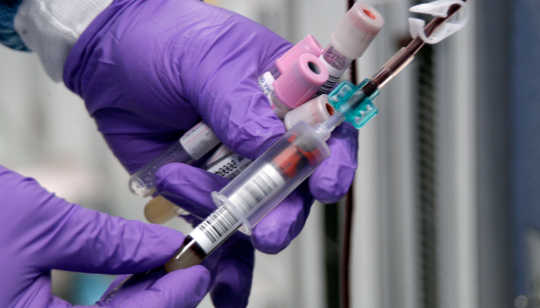 New research suggests a noninvasive blood test could vastly improve early detection rates of severe liver disease—before irreversible damage is done.
New research suggests a noninvasive blood test could vastly improve early detection rates of severe liver disease—before irreversible damage is done.
 We all understand how important breastfeeding is for baby’s health. Breastfeeding mothers often receive a variety of well-intentioned advice about what and what not to eat during this period. But what does the science say?
We all understand how important breastfeeding is for baby’s health. Breastfeeding mothers often receive a variety of well-intentioned advice about what and what not to eat during this period. But what does the science say?
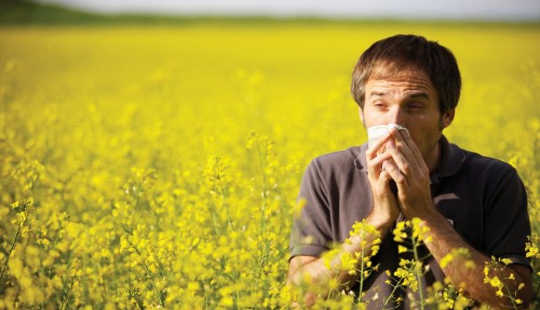 Spring is a favourite time of year for many – as the earth rejuvenates, lawns become green and trees blossom. But for the 15% of Australians who get hay fever, it can be a struggle to get through the season.
Spring is a favourite time of year for many – as the earth rejuvenates, lawns become green and trees blossom. But for the 15% of Australians who get hay fever, it can be a struggle to get through the season.
 I often get the question how I manage to find the time to do so many things, and my answer is always the same: I have learnt to give myself time. In order to not get overwhelmed, or waste my inner energy, I had to learn how to structure my life in such a way that there was plenty of relaxation time...
I often get the question how I manage to find the time to do so many things, and my answer is always the same: I have learnt to give myself time. In order to not get overwhelmed, or waste my inner energy, I had to learn how to structure my life in such a way that there was plenty of relaxation time...
 Exercise releases irisin, a hormone that helps the body shed fat and keeps it from forming, new research shows.
Exercise releases irisin, a hormone that helps the body shed fat and keeps it from forming, new research shows.
 A decrease in the average level of lead in a preschooler’s blood reduces the probability of that child being substantially below proficient in reading by the third grade, report researchers.
A decrease in the average level of lead in a preschooler’s blood reduces the probability of that child being substantially below proficient in reading by the third grade, report researchers.
 E Street lead guitarist Steve Van Zandt once said Bruce Springsteen never took drugs because he was afraid he might reprise his father’s depression
E Street lead guitarist Steve Van Zandt once said Bruce Springsteen never took drugs because he was afraid he might reprise his father’s depression
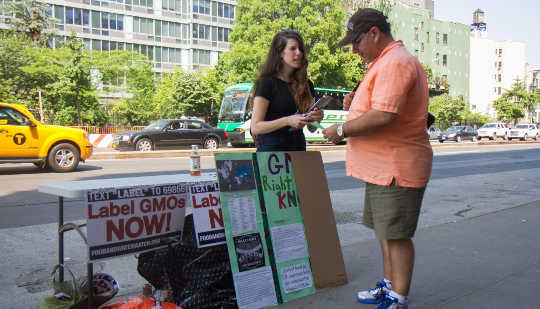 Opponents and proponents of genetically modified food have invoked science in their arguments, but science has no definitive answer.
Opponents and proponents of genetically modified food have invoked science in their arguments, but science has no definitive answer.
 Breast cancer could be detected using a blood test, according to reports out today. Scientists at the Australian National University (ANU) are working with counterparts in France to make this form of cancer detection, that is far less invasive and expensive than other tests such as biopsies, a reality.
Breast cancer could be detected using a blood test, according to reports out today. Scientists at the Australian National University (ANU) are working with counterparts in France to make this form of cancer detection, that is far less invasive and expensive than other tests such as biopsies, a reality.
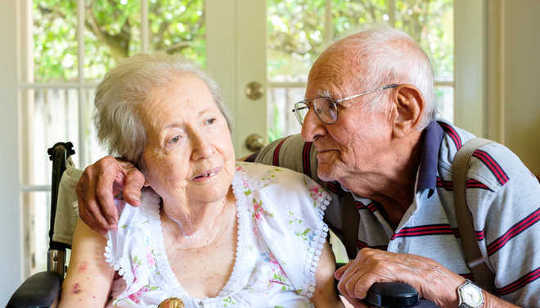 People with a happy spouse are much more likely to report better health over time, according to a new study of 1,981 couples. This occurred above and beyond their own happiness.
People with a happy spouse are much more likely to report better health over time, according to a new study of 1,981 couples. This occurred above and beyond their own happiness.
 We’ve all had the experience of standing up and hearing a loud pop in our back or hip, or trying to tiptoe through the house only to have our foot make a cracking sound each time we take a step. So what’s happening in our joints when this happens, and is it a bad sign?
We’ve all had the experience of standing up and hearing a loud pop in our back or hip, or trying to tiptoe through the house only to have our foot make a cracking sound each time we take a step. So what’s happening in our joints when this happens, and is it a bad sign?
 Women who experience hot flashes and night sweats earlier in life are more likely to die from cardiovascular disease than women with later-onset menopausal symptoms, a new study finds.
Women who experience hot flashes and night sweats earlier in life are more likely to die from cardiovascular disease than women with later-onset menopausal symptoms, a new study finds.
 The brain’s biological clock likely explains why we want to down a glass of water before going to sleep.
The brain’s biological clock likely explains why we want to down a glass of water before going to sleep.
 I wanted to know precisely why I felt like a zombie. Was I stressed out of my mind, overloaded with information that was jamming my gray matter and making myself so crazy-busy that I was running on empty? Had I become a poster child for Prozac, or was I...
I wanted to know precisely why I felt like a zombie. Was I stressed out of my mind, overloaded with information that was jamming my gray matter and making myself so crazy-busy that I was running on empty? Had I become a poster child for Prozac, or was I...
 Think back to the last time you came down with a cold and what it felt like to be sick. For most people, the feeling of sickness is a set of psychological and behavioral changes including fatigue, lethargy, changes in appetite, changes in sleep patterns and a desire to be away from others.
Think back to the last time you came down with a cold and what it felt like to be sick. For most people, the feeling of sickness is a set of psychological and behavioral changes including fatigue, lethargy, changes in appetite, changes in sleep patterns and a desire to be away from others.
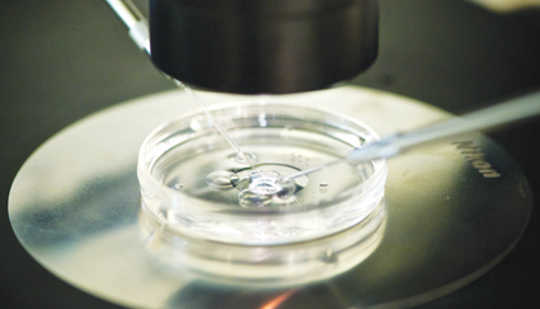 A baby boy, the first child to be born using a new technique that incorporates DNA from three people, is now five months old.
A baby boy, the first child to be born using a new technique that incorporates DNA from three people, is now five months old.
 Defective imports from China, from pet food that kills pets, to toys containing lead, have grabbed headlines in United States for years. Regulations in China are lax, and the communist regime regularly attempts to cover up domestic food scandals.
Defective imports from China, from pet food that kills pets, to toys containing lead, have grabbed headlines in United States for years. Regulations in China are lax, and the communist regime regularly attempts to cover up domestic food scandals.
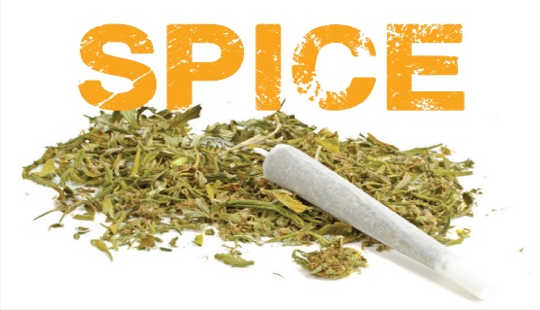 Synthetic cannabis, of which Spice is an example, is linked to serious health issues ranging from difficulties breathing to psychotic episodes.
Synthetic cannabis, of which Spice is an example, is linked to serious health issues ranging from difficulties breathing to psychotic episodes.
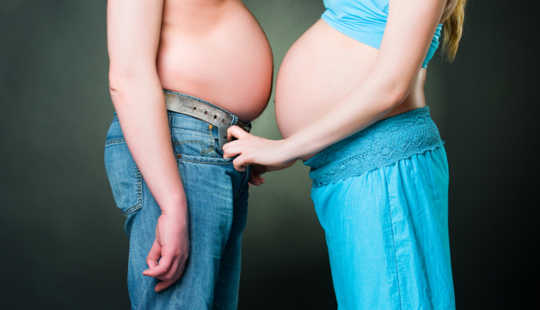 It’s been one of the most astonishing changes in human anatomy. In just one generation, people all over the world have got a lot bigger.
It’s been one of the most astonishing changes in human anatomy. In just one generation, people all over the world have got a lot bigger.
 An increasing number of food-poisoning outbreaks in Britain are being caused by undercooked chicken livers.
An increasing number of food-poisoning outbreaks in Britain are being caused by undercooked chicken livers.
 Lysergic acid diethylamide (LSD) is a synthetic chemical made from a substance found in a fungus that grows on rye and other grains, called ergot.
Lysergic acid diethylamide (LSD) is a synthetic chemical made from a substance found in a fungus that grows on rye and other grains, called ergot.
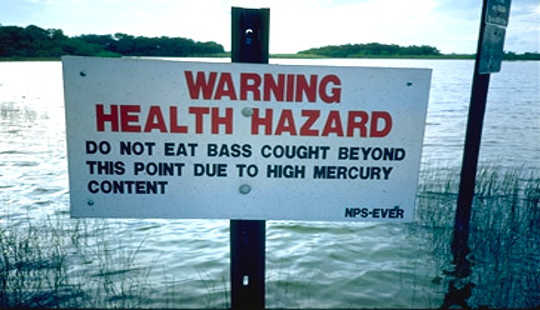 Mercury contamination is widespread across western North America in the air, soil, lake sediments, plants, fish, and wildlife, according to new research.
Mercury contamination is widespread across western North America in the air, soil, lake sediments, plants, fish, and wildlife, according to new research.
 Researchers at George Washington University compiled data from household dust samples collected throughout the United States and found 45 potentially toxic chemicals used in many common products, such as vinyl flooring, personal care and cleaning products, building materials, and furniture.
Researchers at George Washington University compiled data from household dust samples collected throughout the United States and found 45 potentially toxic chemicals used in many common products, such as vinyl flooring, personal care and cleaning products, building materials, and furniture.
















